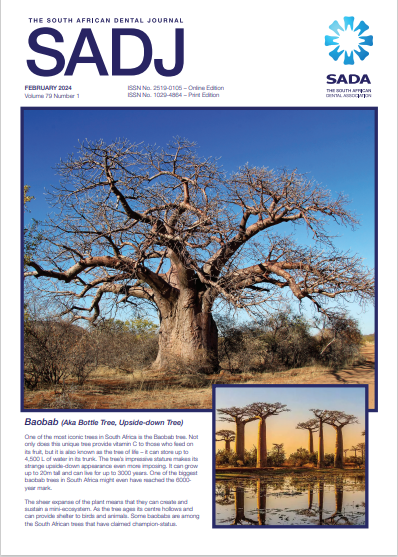Regulatory Overreach – Intervention or Interference
Keywords:
emanatingAbstract
There is a prevalent notion among healthcare professionals that their private lives have no bearing on their work. Yet, the public has expectations about the conduct of health professionals while at work or in public. Citizens are quick to broadcast information, and express opinions, and beliefs about the conduct of health partitioners via social media. Consequently, incidents and behaviours traditionally confined to the work environment, have been brought into the public domain, attracting interest and scrutiny.
The exposure of personal information can have serious ramifications to the individual and professional reputation. We have witnessed in recent times, the regulator having to acknowledge, process and adjudicate professional conduct emanating outside the work environment.
Downloads
References
Abadi HA, Ayentimi DT, Coetzer A. The meaning and essential nature of a profession: a multi-perspective approach. Labour & Industry.2020; 30, 85-96.
Saks M. Defining a profession: The role of knowledge and expertise. Professions and Professionalism.2012; 2: 1-10
Münte P, Scheid C. Coping with crises: a neo-classical view on professions. Professions and Professionalism.2017; 7: e1618-e1618
Huang ECH, Pu C, Chou YJ et al. Public trust in physicians—health care commodification as a possible deteriorating factor: cross-sectional
analysis of 23 countries. INQUIRY.2018; 55:46958018759174. https://doi: 10.1177/0046958018759174
Collier R. Professionalism: the importance of trust. CMAJ. 2012 Sep 18;184(13):1455-6. doi: 10.1503/cmaj.109-4264
Nie, J.-B. et al. Rebuilding patient-physician trust in China, developing a trust oriented bioethics. Developing World Bioethics.2017:1-8.https://doi:10.1111/dewb.12172 (2017).
Meng L, Yu X, Han C et al. Does Internet Use Aggravate Public Distrust of Doctors? Evidence from China. Sustainability. 2022;14. 3959. https://doi.org/10.3390/su14073959
Fatollahi JJ, Colbert JA, Agarwal P et al. The Impact of Physician Social Media Behavior on Patient Trust. AJOB Empir Bioeth. 2020;11(2):77-82. https://doi: 10.1080/23294515.2019.1678533
Forgie E, Lai H, Cao B et al. Social Media and the Transformation of the Physician Patient Relationship: Viewpoint J Med Internet Res. 2021;23(12):e25230. https://doi:10.2196/25230
Health Professions Council of South Africa (HPCSA). Guidelines for good practice in the health care professions. Accessed December 2023. URL: http://www.hpcsa.co.za/Uploads/editor/UserFiles/downloads/conduct_ethics/rules/ generic_ethical_rule
Currie G, Richmond J, Faulconbridge J. et al. Professional misconduct in healthcare : setting out a research agenda for work sociology. Work, Employment and Society.2019; 33 (1):149-161.https://doi.org/10.1177/095001701879335
Thaldar D. Research and the meaning of ‘public interest’ in POPIA. S Afr J Sci. 2022;118(3/4). https://doi.org/10.17159/ sajs.2022/13206
Sorauf FJ. (1957). The public interest reconsidered. The Journal of Politics.1957; 19(4): 616-639.
Klosterman RE. (1980). A public interest criterion. Journal of the American Planning Association. 1980;46(3):323-333.
Lewis CW. (2006). In pursuit of the public interest. Public administration review.2006; 66(5):694-701.
Downloads
Published
Issue
Section
License

This work is licensed under a Creative Commons Attribution-NonCommercial 4.0 International License.





.png)